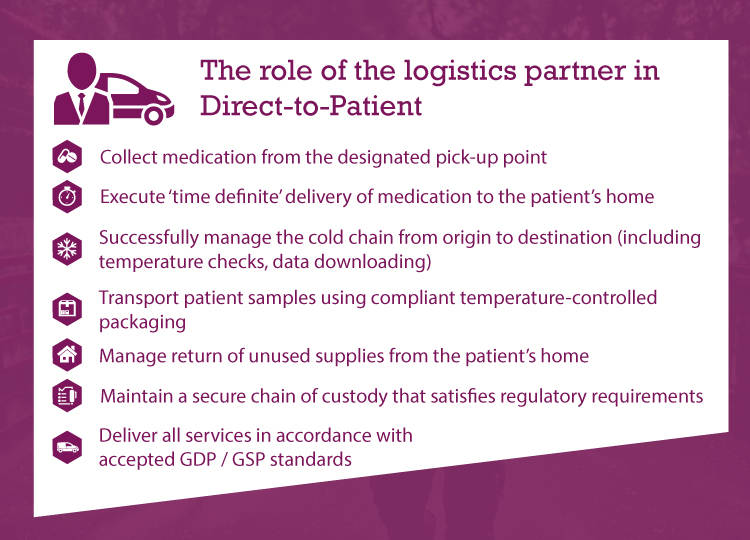Article: The Importance of Training and Continuity in Direct-to-Patient Services
By Kelly Frend
When your therapeutic product is delivered and administered
to patients at home, how can you ensure that required procedures are executed
consistently each time? What if a different nurse or driver is assigned to your
patient?
The answer lies in the thorough training of all frontline
staff who play a role in relation to Direct-to-Patient (DtP) services.
The nursing partner is responsible for all study- or program-specific training, completed on a
country-by-country basis, covering all aspects of the protocol through to Good
Clinical Practice (GCP).
To gauge the importance of
training for your logistics partner,
a thorough understanding of their role is required:

In addition to detailed SOPs related to temperature-controlled packing, shipping, training and DtP, additional SOPs should address issues such as:
- Regulatory compliance for DtP including GxP (Good Practice) adherence
- Patient confidentiality (dispatch, blinding of documentation, invoicing and related requirements)
- Driver communications with patients and nurses
- Packaging and labelling
- Identification of recipients
- Data retention and destruction
- Contingency planning
- Protocol support
Service excellence is only as good as the weakest link. Continuous training and thorough SOPs eliminates any weak links and should be a priority when implementing DtP services.


.jpg?h=56&iar=0&w=56&useCustomFunctions=1¢erCrop=1&hash=5C3BF081DEFE0CD4643E0D660948B3B2)


